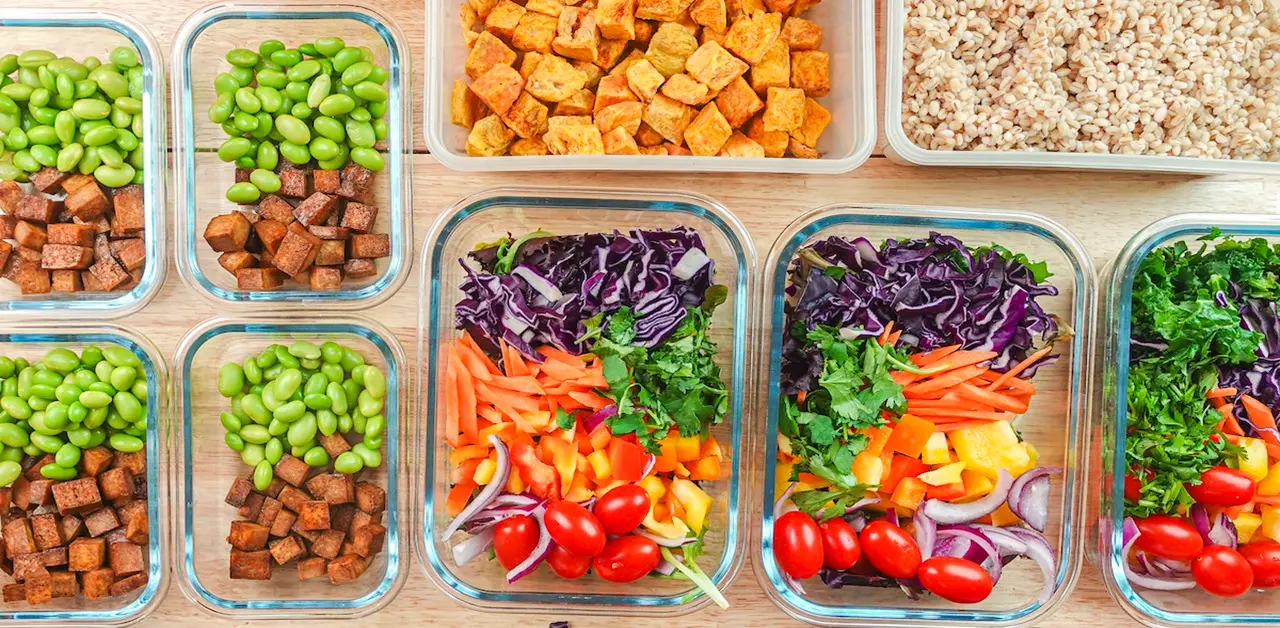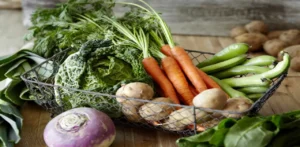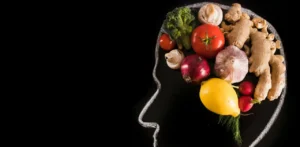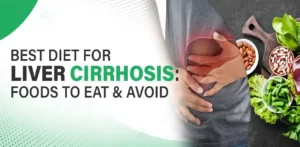Contents
- 1 Why Go Vegan? Exploring the Motivations
- 2 Unveiling the Spectrum: Types of Veganism
- 3 A World of Flavor: What Vegans Eat
- 4 Fueling Your Day: A Vegan Meal Plan
- 5 Embracing the Vegan Lifestyle: Essential Tips and Resources
- 6 Vegan on the Go: Finding Vegan-Friendly Restaurants
- 7 Embrace the Journey: Resources for Vegan Success
- 8 The IntRest Advantage: Vegan Made Easy
The world of healthy eating is brimming with exciting possibilities, and veganism has emerged as a powerful force for those seeking a diet rich in nutrients and aligned with ethical and environmental values. Whether you’re a seasoned health enthusiast or simply curious about exploring plant-based options, this comprehensive guide delves into the world of veganism, empowering you to make informed choices about your meals.
Why Go Vegan? Exploring the Motivations
People choose veganism for a multitude of reasons. Let’s explore some of the most common ones:
- Ethics: Many vegans are driven by a deep respect for animal welfare. They believe that animals shouldn’t be raised for food and that factory farming methods are cruel.
- Environment: Animal agriculture has a significant impact on the environment, contributing to greenhouse gas emissions, deforestation, and water pollution. Veganism offers a way to reduce your environmental footprint.
- Health: Vegan diets tend to be rich in fruits, vegetables, legumes, whole grains, nuts, and seeds, all packed with essential vitamins, minerals, and fiber. Studies suggest that a well-planned vegan diet can lower the risk of heart disease, type 2 diabetes, and certain cancers.
- Personal Preference: Some individuals simply find they thrive on a plant-based diet and enjoy the variety and creativity vegan cuisine offers.
Unveiling the Spectrum: Types of Veganism
While the core principle of excluding animal products remains constant, there are different ways to embrace veganism:
- Strict Vegan: This encompasses avoiding all animal products in food, clothing, and other lifestyle choices.
- Dietary Vegan: Focuses on a plant-based diet but may not necessarily extend it to other aspects of life.
- Fruitarian Vegan: Primarily consumes fruits, with occasional inclusion of nuts and seeds.
- Raw Vegan: Adheres to a diet of uncooked or minimally processed plant-based foods.
- WFPB Vegan (Whole Food Plant-Based): Emphasizes unprocessed or minimally processed plant foods like fruits, vegetables, whole grains, legumes, nuts, and seeds.
A World of Flavor: What Vegans Eat
Now, let’s delve into the delicious world of vegan food! Here’s a glimpse into the vibrant tapestry of a vegan diet:
Foods Vegans Embrace:
- Fruits: A rainbow of nature’s candy, offering vitamins, minerals, and antioxidants.
- Vegetables: Packed with fiber, vitamins, and minerals, they form the cornerstone of a healthy vegan diet.
- Legumes: Beans, lentils, chickpeas, and peas provide a powerhouse of protein and fiber.
- Whole Grains: Quinoa, brown rice, oats, and whole-wheat bread are excellent sources of complex carbohydrates, essential for sustained energy.
- Nuts and Seeds: Rich in protein, healthy fats, and essential minerals.
- Plant-Based Milks: Soy milk, almond milk, oat milk, and coconut milk offer dairy-free alternatives.
- Plant-Based Meat Alternatives: Tofu, tempeh, seitan, and lentil crumbles can add variety and protein to your meals.
- Healthy Oils: Olive oil, avocado oil, and canola oil provide essential fatty acids.
Foods Vegans Avoid:
- Meat: All types of meat, including poultry, red meat, and seafood.
- Dairy: Milk, cheese, yogurt, butter, and other dairy products.
- Eggs: Chicken eggs, duck eggs, and other types of eggs.
- Honey: Produced by bees, it’s excluded due to ethical concerns.
- Refined Sugars: Limited intake of processed sugars promotes overall health.
Fueling Your Day: A Vegan Meal Plan
Vegan Breakfast Ideas:
- Smoothie bowl with plant-based milk, fruits, and granola.
- Whole-wheat toast with avocado and sliced tomatoes.
- Vegan pancakes with berries and maple syrup.
- Scrambled tofu with sauteed vegetables.
Vegan Lunch Ideas:
- Lentil soup with whole-wheat bread.
- Veggie burger on a whole-wheat bun with side salad.
- Quinoa bowl with roasted vegetables and tahini dressing.
- Chickpea salad sandwich on whole-wheat bread.
Vegan Dinner Ideas:
- Vegetarian chili with brown rice.
- Vegan stir-fry with tofu, vegetables, and brown rice.
- Lentil pasta with marinara sauce and roasted vegetables.
- Veggie curry with chickpeas and coconut milk.
Vegan Dessert Ideas:
- Vegan chocolate avocado mousse.
- Baked apples with cinnamon and chopped nuts.
- Fruit salad with a drizzle of plant-based yogurt.
- Vegan brownies made with whole-wheat flour and dark chocolate.
Embracing the Vegan Lifestyle: Essential Tips and Resources
Beyond the Plate: Essential Nutrients for Vegans
While a well-planned vegan diet offers a wealth of health benefits, certain nutrients require extra attention:
- Vitamin B12: Primarily found in animal products, fortified plant-based milks and nutritional yeast are excellent vegan sources. Consider consulting a doctor about B12 supplementation.
- Iron: Leafy green vegetables, beans, lentils, fortified cereals, and nuts are good sources. Enhance absorption by pairing iron-rich foods with vitamin C-rich ones like citrus fruits or bell peppers.
- Calcium: Dark leafy greens, fortified plant-based milks, tofu processed with calcium sulfate, and calcium-set alginates are great options. Aim for a variety of these foods throughout the day.
- Omega-3 Fatty Acids: Flaxseeds, chia seeds, walnuts, and algae-based supplements provide essential omega-3s.
Vegan on the Go: Finding Vegan-Friendly Restaurants
Gone are the days of limited vegan options. With the rise of plant-based eating, many restaurants cater to vegan preferences. Here’s how IntRest can help:
- Dietary Filters: IntRest allows you to filter restaurants based on your dietary needs. Simply select “Vegan” under the diet filter, and discover a world of delicious plant-based options near you.
- Restaurant Reviews: Read reviews from other vegans to get insights into the best vegan dishes at various restaurants.
- Convenient Ordering: Order directly through IntRest from your favorite vegan restaurants and enjoy a hassle-free dining experience.
Also Read: “What Is a Pollotarian Diet? Benefits, Food Lists, and More”
Embrace the Journey: Resources for Vegan Success
A successful vegan journey is all about planning, knowledge, and a supportive community:
- Vegan Cookbooks and Blogs: Explore a plethora of vegan cookbooks and blogs brimming with creative and delicious recipes.
- Vegan Online Communities: Connect with other vegans online through forums and social media groups for support, recipe inspiration, and tips.
- Meal Planning Apps: Utilize meal planning apps designed for vegans to ensure you have healthy and delicious meals prepped for the week.
Remember:
- Transition Slowly: If you’re new to veganism, transition gradually to allow your body to adjust.
- Listen to Your Body: Pay attention to your body’s needs and adjust your diet accordingly.
- Consult a Registered Dietitian: A registered dietitian can personalize a vegan meal plan to ensure you’re getting all the nutrients you need.
The IntRest Advantage: Vegan Made Easy
IntRest empowers you to embrace a healthy and fulfilling vegan lifestyle. With its comprehensive filtering system, informative restaurant reviews, and convenient ordering options, finding delicious and satisfying vegan meals has never been easier. Explore the world of vegan cuisine with IntRest, and embark on a journey of health, compassion, and culinary exploration.



